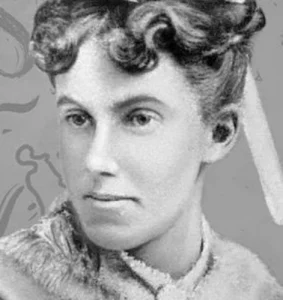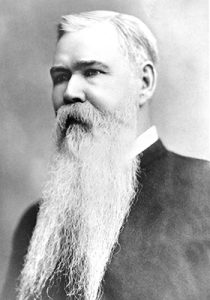Casual observers might have thought the Southern Baptist Convention settled its position on women in ministry 30 years ago. Turns out, that’s not the case at all.
An issue that was explosive for the SBC during the heyday of its “conservative resurgence” in the 1980s is back. Only this time, the debate isn’t between so-called “moderates” and “conservatives.” It’s between two types of conservatives.
To understand this deep divide inside the nation’s largest non-Catholic denomination, look to American politics for a parallel: The current schism within the Republican Party over federal debt and spending limits.
There, Republican Speaker of the House Kevin McCarthy — never accused by anyone anywhere of being a liberal — faces a rebellion from the most strident wing of his own party, sometimes known as the Freedom Caucus. McCarthy and President Joe Biden have put forward a proposal built on something rarely seen in Washington: Compromise. Both sides are giving up some things they want and swallowing some bitter pills they’d rather avoid.
But the far-right Republicans in the House have no interest in compromise of any kind. They want their demands and only their demands. Anything less, they believe, will be ruinous. They would rather throw the nation into fiscal default than give an inch on their principles.
“Ditto for the farthest right wing of the SBC — only with the fiery wrath of God thrown on top of the disagreement.”
Ditto for the farthest right wing of the SBC — only with the fiery wrath of God thrown on top of the disagreement. The most ultra-conservative faction of the SBC believes the Bible explicitly condemns women as pastoral leaders in the church. To remain “in fellowship” with anyone who sees that differently would be spiritually ruinous. They care nothing about the numerical health of the SBC or its public reputation; they care only about doctrinal purity.
This is a different scene than when the SBC last went to war over the role of women in church leadership. As conservatives sought control of the denomination beginning in 1979, disallowing women in ministry was a rallying cry along with biblical inerrancy. Messengers to an SBC annual meeting went so far as to adopt a resolution saying Eve was “first in the Edenic fall” and therefore not capable of providing spiritual leadership.
The first generations of women being trained in SBC seminaries for congregational ministry fled — as did their churches. Some of the women became Methodists or Episcopalians, while some of the churches helped form the Alliance of Baptists and the Cooperative Baptist Fellowship.

Molly Marshall outside Norton Hall at Southern Baptist Theological Seminary (Photo courtesy of Good Faith Media)
No one became more of a symbol for this battle than Molly Marshall, the first woman to earn a Ph.D. in theology from Southern Baptist Theological Seminary, the mother seminary of the SBC. After she was hired as a theology professor at Southern Seminary, the idea of a woman teaching male students theology ignited a firestorm that propelled conservatives to victory.
Marshall went on to make significant contributions to theological education elsewhere, mainly as president of Central Baptist Seminary in Kansas City and now as president of United Theological Seminary of the Twin Cities.
Another significant movement that emerged from the SBC battle was Baptist Women in Ministry, a coalition of female clergy and allies focused mainly on every Baptist body except the SBC.
Back in the day, the very phrase “female minister” was equated with theological liberalism. Whether justified or not, that was the perception of conservatives.
Yet today, many of the female ministers and churches under attack in the SBC are no more liberal than Kevin McCarthy. Most of them are, in fact, theologically conservative.
How did this happen?
Two opposing forces explain why this question has arisen again.
On one hand, a new generation of Baptist women say they are hearing and responding to the wind of the Spirit calling them to vocational ministry. One the other hand, Baptist opponents of female ministers have grown more strident in their absolute certainty that the Holy Spirit cannot and does not call any woman to the role of pastor.
“Baptist opponents of female ministers have grown more strident in their absolute certainty that the Holy Spirit cannot and does not call any woman to the role of pastor.”
And in the midst of this, some male pastors have had their own epiphanies about more expansive roles for women in church leadership.

Rick Warren addresses messengers to the SBC annual meeting in 2022. (Photo courtesy of The Baptist Paper)
The most notable example is Rick Warren, founding pastor of Saddleback Church in Orange County, Calif. — one of the churches recently kicked out of the SBC for ordaining women and allowing women to preach. In a March interview with Russell Moore, Warren explained how rereading Scripture changed his mind.
Warren, recently retired, is now leading the charge to get Saddleback reinstated to the SBC and to promote a compromise on the issue of women as ministers.
That makes Warren, once the admired guru of church growth in the SBC, one step short of Satan himself in the minds of the most conservative doctrinal purists. One of the most common epithets hurled at Warren today is that he is a “pragmatist.” Pure doctrinal conformity cannot abide pragmatism, which is seen as another word for compromise.
Warren is far from alone in his newfound openness to women serving in more expansive roles in preaching the gospel and leading the church. His younger successor at Saddleback, Andy Wood, shares this openness and his own wife, Stacie Wood, is now one of the teaching pastors at the Southern California megachurch.
Other conservative Southern Baptist pastors are on similar journeys — a change in perspective they say is based on biblical beliefs.
The case for women
Warren and others are behind a new website called SBC Stand.
There, Warren advises: “As followers of Christ, we’re never going to achieve unity on doctrine, but we can achieve unity on mission.”
The mission of spreading the gospel of Jesus to every nook and cranny of the earth is so important, so urgent, that every Christian woman and man is needed on the job, Warren explains. “Great Commission Baptists believe Jesus authorized every woman to go, to make disciples, to baptize and to teach — just as he authorized every man. We cannot finish the task Jesus gave us with 50% of the church forced to sit on the bench.”
“Like his critics, Warren quotes Bible verses to make his case.”
Like his critics, Warren quotes Bible verses to make his case — just different ones. He centers his appeal on the Great Commission, the final words of Jesus to his followers before his ascension, the command to go into all the world and make disciples, baptizing believers and teaching them to obey the words of Jesus.
Warren says: “There are four verbs in the Great Commission: Go, make disciples, baptize, and teach, which apply to every follower of Jesus, including women — not just men. Women are to go. Women are to make disciples. Women are to baptize. And women are also to teach. As we obediently work to make the name of Jesus known throughout the world, it’s imperative that we’re prepared to collaborate in new ways and work together toward broader cooperative goals in Bible translation and engagement; evangelization and witness empowerment; and church planting.”
He believes momentum is on his side, predicting: “The next generation of Southern Baptists will remove the restriction on women one day, because truth eventually triumphs over tradition.”
Like Tevye in “Fiddler on the Roof,” Warren’s critics sing a perpetual song of tradition. In addition to citing a couple of well-worn New Testament verses about women’s roles, these doctrinal purists rely heavily on the tradition of men interpreting Scripture to prohibit women from being pastors.

Lottie Moon
To that, Warren counters with one of the best-known names in Southern Baptist tradition: Lottie Moon.
Lottie Moon is the Mother Teresa of Southern Baptist lore. In the late 19th century, Charlotte Digges Moon joined her sister as a Southern Baptist missionary to China’s Shantung province. She taught in a girls’ school and often made trips into China’s interior to preach and teach the gospel.
Except in Southern Baptist lore, Lottie Moon didn’t actually “preach.” She couldn’t have, Baptist logic says.
The SBC International Mission Board says of her: “Lottie Moon was passionate about people knowing Christ. She didn’t hesitate to speak her mind.”
In 1918, Southern Baptists named their international missions offering for Lottie Moon, making her a household name among Baptists a century later. The Lottie Moon Offering has raised more than $5 billion to support missions work.
On the SBC Stand website, Warren makes this Southern Baptist hero as an ally to his cause: “Lottie Moon, an American SBC missionary with the Foreign Mission Board, spent nearly 40 years living and working in China. Moon was a strong proponent of perfect equality with men with no restrictions on women and ministry. She behaved as if she had equality with men and became the most popular and respected missionary among Southern Baptists.”
And then this: “The irony is that her name has been used to raise money for SBC mission efforts while the denomination’s leaders have maintained a policy of women being subservient to men.”
Thus, to Warren and others in the SBC advocating for women serving as ministers and preachers, the root cause they are fighting against is a theology of male headship.
The case against women
To understand the view of traditionalists who oppose women serving as ministers, begin with the word “complementarian.” This describes a theology built around the sincere belief that Scripture teaches women and men are of equal worth to God as Creator but God has ordained different roles for men and women. Complementarianism teaches that men are to have authority over women and children in church and home.
There are varying degrees of complementarianism — with one sometimes described as “soft” complementarianism. Anything “soft” is suspect in the eyes of hardline male headship advocates. Among a segment of modern evangelicalism that has seeped into the SBC, men are to be stereotypically manly.
This is why for some strict complementarians, taking a stand against female pastors is wrapped up in standing against gays, lesbians and transgender people and other “woke” ideologies.
“Firmly defined gender lines are essential to their theology.”
Firmly defined gender lines are essential to their theology. All these things intertwine.

Mike Law
Virginia pastor Mike Law is leading the charge for an amendment to the SBC Constitution that would definitely state the denomination’s rejection of any church or pastor that ordains women to ministry or even gives a women a job title including the word “pastor.”
On his website explaining the need for a constitutional amendment, Law says modern culture “seeks to erase the distinctions between men and women” as part of a “drift toward liberalism.”
He warns: “Generally speaking, history shows that once a denomination has female pastors, it’s usually just a matter of time until they ordain homosexual pastors. … The reality is, this issue has been a canary in the coalmine for many denominations. If we cannot be clear and unashamed about what the Bible says a pastor is now, then there is little hope that we will stand firm on other teachings of God’s word that are out of step with the standards of the world. We must believe what the Bible teaches and go wherever it leads regardless of cost or consequences.”
What the Bible says, according to Law and his allies, is crystal clear.
“We as Southern Baptists know what a pastor is and who should be a pastor,” his website says. “A pastor/elder/overseer/bishop is a man called by God and a local church to shepherd the flock.”
Law cites six primary Scriptures to support his case: Acts 20:17-38; Ephesians 4:11; 1 Timothy 3:1-7; Titus, 1:5-9; Hebrews 13:17; and 1 Peter 5:1-5.
“To get the complementarian meaning of some of these passages requires intensive debate about specific words in Greek.”
To get the complementarian meaning of some of these passages requires intensive debate about specific words in Greek, the original language of the New Testament. So while Warren is waging a pragmatic battle about evangelism, Law is waging a technical battle about the words of Scripture.
Law counters Warren’s citation of women preaching at the empty tomb and at the Day of Pentecost.
“Women do indeed teach in Scripture, and even correct a man’s preaching in private (Acts 18:26),” he writes. “They share the good news of Christ’s resurrection with a group of men, including apostles (Matthew 28:8). But do these stories of Priscilla and Mary Magdalene authorize women to preach and teach with authority when the church gathers corporately or to take up the pastoral office? Simply put: no.
He continues: “The Apostle Paul, who was commissioned by Jesus as an expert builder of the church (1 Corinthians 3:10) and who regularly praises women who support and partner with his ministry (Romans 16), plainly states that he does not permit a woman to teach or exercise authority over a man (1 Timothy 2:12). Paul provides this instruction within the context of proper decorum when the church gathers for worship. He grounds his instruction not in the cultural context of Ephesus but in creation (1 Timothy 2:13-14). This teaches us that God’s design for men and women, both in creation and redemption, includes male headship, and one application of this reality is that the Bible assigns the role of pastor to godly, biblically qualified men.”
Warren says he used to believe similar things as Law. That’s how he was raised and taught among conservative Southern Baptists. But a rereading of Scripture caused him to see things in a new light.
Thus, part of the current debate among Southern Baptists is about tradition versus new understandings of Scripture and about how to balance various biblical teachings in conversation with each other.
On the side of tradition, Tom Ascol, leader of the conservative Calvinist wing of the SBC, met Rick Warren’s citation of Lottie Moon with his citation of another 19th century Southern Baptist giant, B.H. Carroll, founder of Southwestern Baptist Theological Seminary.

B.H. Carroll
Ascol tweeted May 23: “B.H. Carroll, 1st President of SWBTS, on the sin of having women pastors: ‘The custom in some congregations of having a woman as pastor is in flat contradiction to this apostolic teaching & is open rebellion against Christ our king, & high treason against his sovereignty, and against nature as well as grace. It unsexes both the woman who usurps this authority and the men who submit to it. Under no circumstances conceivable is it justifiable.”
And Kentucky pastor Hershael York, also a dean at Southern Seminary, took on Warren in this subtweet: “Anytime someone writes a lengthy article or puts up an entire website to explain why a passage in the Bible does not actually mean the clearest, most natural meaning of the words in the text, I’m always glad the author is not my pharmacist.”
What’s next?
While the battle over women as church leaders plays out daily on social media and newly created websites, the true showdown will come June 13-14 when thousands of messengers from local churches gather in New Orleans for the SBC annual meeting.
This gathered body represents the primary governance of the denomination. It is there that Law’s proposed amendment will be debated and that Warren’s appeal to reinstate Saddleback will be heard.
A second church kicked out for allowing female pastors — Fern Creek Baptist Church of Louisville, Ky. — also plans to appeal its ouster. Linda Barnes Popham has served as pastor there since 1993.
Danny Hass, deacon chairman at Fern Creek, told Baptist Press his church is Southern Baptist through and through but interprets scriptural references to pastors differently than many in the SBC.
“We truly feel that, in those particular Scriptures, the way that we’ve looked at those in history is that Paul was talking about particular women at a particular church. The women felt like they had just gained this freedom, I guess, and they felt like in this particular church if they had questions or needed to speak out, they did, during the service,” he told BP.
“And Paul was very adamant about keeping a decorum in church, where things were reverent. There was a particular order to the service. And Paul did not like very much the women speaking out in church and from what I understand, they were not learned like their husbands were. They did not go to the Jewish school.”
The fast-paced format of the two-day annual meeting will not allow for deep theological discussion on points of Scripture like this. The meeting runs on a literal time clock with a certain number of minutes allocated to each agenda item.
Therefore, most of the real debate must happen before the meeting, which is why websites have been created and social media campaigns are beginning. Most registered messengers — the only ones allowed to vote — likely will come to New Orleans with their minds made up on the issue of women serving as pastors.
What’s not known is who will show up. Just as in U.S. secular elections, voter turnout will determine the outcome.
Related articles:
Scripture changed his mind on women in ministry, Rick Warren tells Russell Moore
Southern Baptist Convention ousts its largest church, Saddleback, for having a woman pastor
Largest church in SBC ordains three women as pastors
As church staff roles evolve, the SBC is forced to define the word ‘pastor’
Rick Warren outlines five reasons Saddleback will challenge its expulsion from SBC
Allow female pastors today and expect gay clergy tomorrow, Mike Law warns
Those who say women cannot be pastors are ‘wrong,’ open letter asserts
If you’re going to quote 1 Timothy 3:2, be sure to read Exodus 20:17 | Opinion by Brad Bull
I’m one of the female pastors on the SBC’s hit list | Opinion by Carlisle Davidhizar


